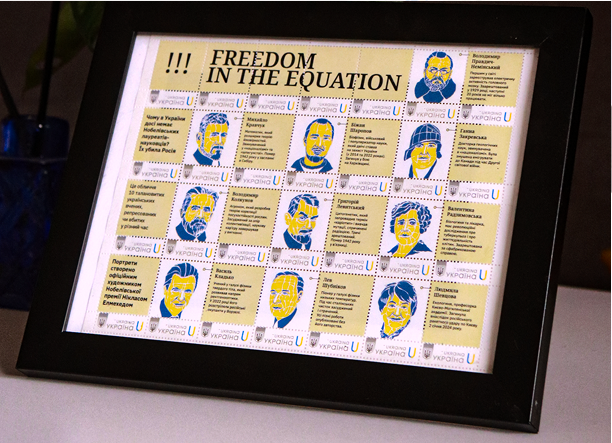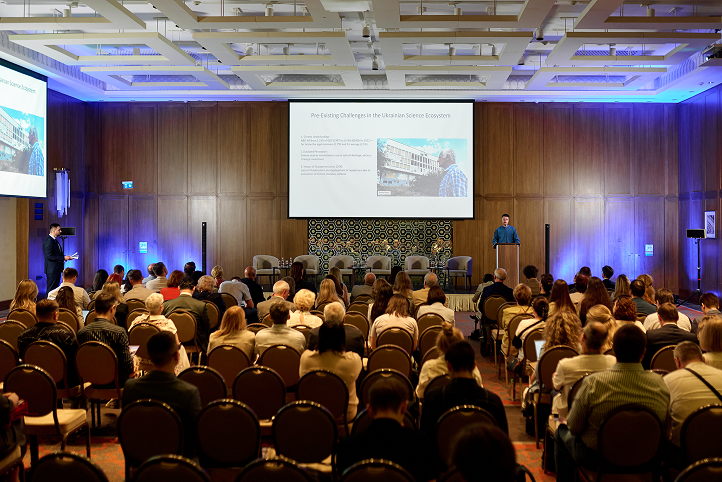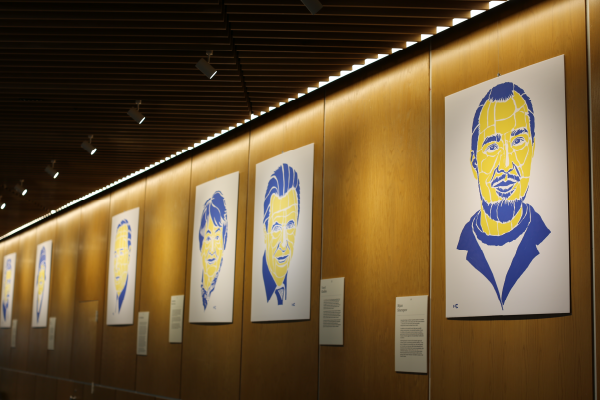

Scientific team, or why “a solitary scientist in the ivory tower” works less and less: blog of Olena Pareniuk
15.11.23
Olena Pareniuk is a Ph.D. in Biology and a senior scientist at the Department of Nuclear and Radiation Safety of the NASU Institute for Safety Problems of Nuclear Power Plants. In the Science at Risk project, she works in the Renovation group. She researches bacterial diversity in the substrates contaminated with radionuclides. In this blog, she will tell us why it’s important for scientists to work in teams.
Our society creates new technology, builds more and more complex economic and social models, and plans and executes projects on a larger and larger scale.
It’s become clear since the mid-20th century that projects like the creation of an atomic bomb, the conceptualization of the internet, or the building of the Large Hadron Collider, are impossible to achieve by the intellectual efforts of only one person. Meanwhile, the need to think through every facet and understand every smallest detail of large projects has stimulated scientific knowledge to become more complex and gave rise to new specialized disciplines.
Since the 1990s, governments and grant institutions have evaluated the benefits of coordinated teamwork between scientists, and are interested more and more and prefer to invest in team research initiatives of larger scale to solve problems that demand interdisciplinary collaboration. Teamwork grows more popular in parallel with the narrowing of scientific specialization.
The increase in the speed of informational exchange has led to explosive growth and accumulation of specialized knowledge in many scientific fields, and thus the need to forge partnerships between researchers and practitioners from several different fields to solve complex social, ecological, and public health problems has become more acute.
On the other hand, the possibility to work in a team, where a researcher doesn’t have to constantly analyze new knowledge in the whole field and can concentrate on a certain task knowing that the members of his scientific team will give all the necessary information if needed and won’t let the general expertise of the team to diminish, helps decrease the level of stress and workload for a single person, which creates comfortable conditions for creative work.
The results of the in-depth interviews led by our team in Science at Risk show that more than half of the scientists who are residents of Ukraine don’t think they are part of a certain research team, though they work in the structures of research institutes or university chairs. At the same time, the majority of researchers from the diaspora as well as the foreign experts we interviewed are either leaders or members of research teams.
This means that the ability to forge long-term scientific ties and form a network of professional contacts both in Ukraine and abroad could help the development and strengthening of our science. Moreover, considering the inability of full-fledged state funding of all (and not just priority) scientific fields in difficult war and post-war times, such contacts could help Ukrainians to enter the European research area.
Unfortunately, most institutions that provide post-graduate studies are focused in their educational courses more on the development of technical and professional skills and fail to support teamwork. This way, they don’t stimulate collaboration between young scientists, prioritizing instead the communication between the young researcher and their scientific supervisor only.
This way of getting scientific knowledge and skills was considered mainstream by 73% of respondents in our research. At the same time, the educational system in universities in the G7 countries is built mainly on teamwork, and practices of regular (weekly or monthly) discussions of the results in the group are not just widespread, but obligatory.
Additionally, in universities in the USA, there’s a widespread practice of “laboratory rotation” (usually, in the first year of postgraduate studies), especially in technical and nature sciences (biology, chemistry, engineering, etc.); the postgraduate has an opportunity to work in 4 to 6 different laboratories during around 6-8 weeks before finally deciding which group to join. During the rotation, the young scientist can both acquire new skills and work in different teams, often with different models of leadership and management.
Certainly, there are efficient and stable research teams in Ukraine as well; this is visible from the growth in the number of scientific publications with foreign colleagues and from the increase in the number of Ukrainians who take part in grant financing.
Results of our focus groups and surveys show that 70% of respondents are interested in possibilities to broaden their communication with colleagues from their field, and more than 50% are interested in courses and training to improve their soft skills. This means that the scientific community is interested in the knowledge of building efficient teams. At the same time, 74% of respondents said that any professional training is financed by the researchers themselves. This often is a restraining circumstance.
Acquaintance with successful teams, training on how to build and sustain them, and networking events that would stimulate communication between different scientific groups (in one field and between the fields) can strengthen scientific collaboration. This, in turn, will help build a stronger scientific community in the country.

